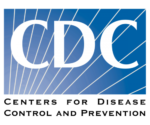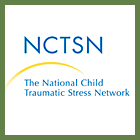ACEs
Frequently asked questions about Adverse Childhood Experiences, toxic stress, and how to reduce the effects.
ACEs Connection is a social network that accelerates the global movement toward recognizing the impact of adverse childhood experiences in shaping adult behavior and health, and reforming all communities and institutions.
The Attachment & Trauma Network’s mission is to promote the healing of children impacted by trauma through supporting their families, schools, and communities.
Learn more about preventing ACEs in your community by assuring safe, stable, nurturing relationships and environments with these resources from the CDC.
The Child & Adolescent Health Measurement Initiative (CAHMI)’s mission is to promote the early and lifelong health of children, youth, and families. Part of fulfilling this mission is to disseminate data, information, and ideas to understand and address social determinants of health, like adverse childhood experiences and the trauma and chronic and toxic stress that can result and impact lifelong health. A primary focus is on promoting the development of positive health, such as resilience, engagement in life, and the safe, stable, and nurturing relationships most essential to child development and well being.
The third edition of the Child Welfare Trauma Training Toolkit (CWTTT) incorporates two foundational trainings, a specialized skills training for supervisors and caseworkers, and a supervisor consultation series to enhance transfer of learning into day-to-day practice.
The ChildTrauma Academy is a Community of Practice working to improve the lives of high-risk children through education, research, and the dissemination of innovation.
Helping Traumatized Children Learn is the result of an extraordinary collaboration among educators, parents, mental health professionals, community groups, and attorneys determined to help children experiencing the traumatic effects of exposure to family violence succeed in school.
This article is about how teachers help students who’ve survived trauma.
This article is about “how trauma is changing children’s brains”.
NCSSLE has provided a number of in-depth guides and training products to help build and promote a safe and supportive learning environment.
Established by Congress in 2000, the National Child Traumatic Stress Network (NCTSN) brings a singular and comprehensive focus to childhood trauma. NCTSN’s collaboration of frontline providers, researchers, and families is committed to raising the standard of care while increasing access to services. Combining knowledge of child development, expertise in the full range of child traumatic experiences, and dedication to evidence-based practices, the NCTSN changes the course of children’s lives by changing the course of their care.











